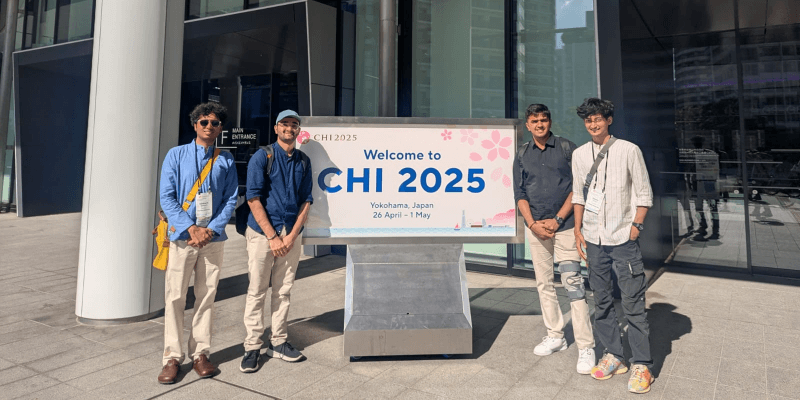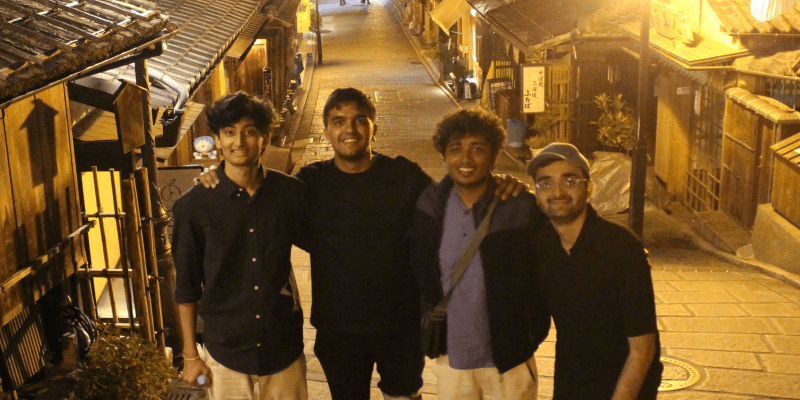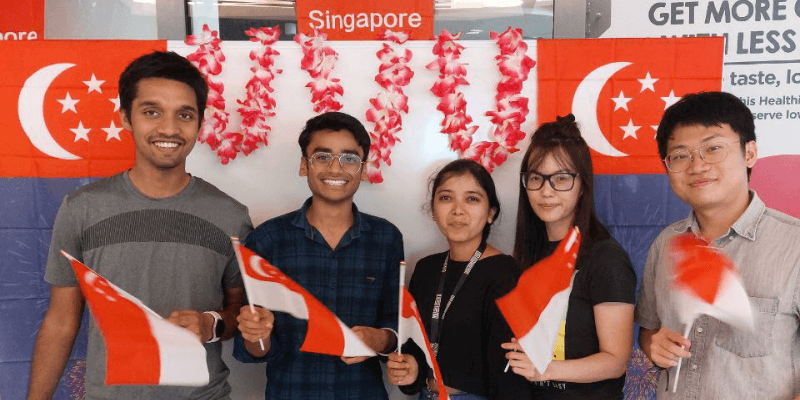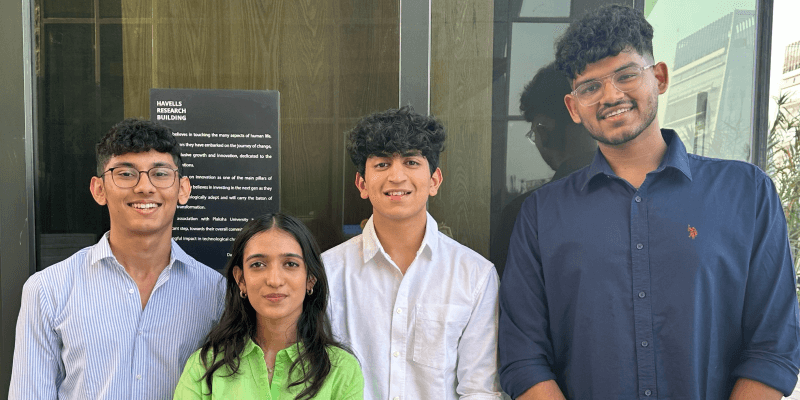
February 23, 2025. 11:47 PM. Group chat notification.
"Plaksha will be at CHI 2025!"
This message from our professor, Dr Siddharth, hit differently. It represented something we had been chasing since September 2024 and this message was a validation that our chaotic late-night coding sessions and endless iterations had produced something meaningful. For the three of us, me, Rushi Gadhvi and Priyansh Desai, going to CHI 2025 was more than an acceptance notification.
Our paper, 'AdaptAI: A Personalized Solution to Sense Your Stress and Fix Your Mess', began as a humble course project in Human Technology Interaction. Professor Siddharth, with his characteristic persistence, kept pushing us beyond the comfortable boundaries of semester-end deliverables. He kept asking, "Go further. What is the real problem you are solving?"
That relentless questioning transformed what could have been another forgotten assignment into our first A* conference publication. The trajectory from classroom exercise to CHI acceptance illustrates something fascinating about academic serendipity: sometimes the most significant discoveries emerge from refusing to accept 'good enough.'
As our work matured, Shreyas Ramachandran joined us in our effort, bringing critical insight and energy to the data analysis and experimentation phase. His contributions sharpened our methodology and grounded our results in much-needed rigor.
For those unfamiliar with the Computer Human Interaction conference ecosystem, CHI represents something akin to the intellectual Olympics of human-computer interaction research, where, every year, thousands of researchers, industry practitioners, and academic luminaries converge to explore questions that range from the profoundly practical to the delightfully esoteric.
The research landscape at CHI defies simple categorization. Haptic feedback mechanisms that make digital interfaces feel tangible. Cognitive load assessment through neural pattern recognition. Algorithmic bias detection in recommendation systems. Cultural adaptation frameworks for global technology deployment.
The experience transcended typical conference attendance, we found ourselves interacting with a global research community that welcomed our contributions despite our obvious novice status.
The intellectual diversity was staggering. Morning sessions might explore neuromorphic computing applications, while afternoon workshops delved into participatory design methodologies for marginalized communities. Each presentation offered glimpses into research trajectories we had never considered.
Standing before audiences that included researchers from Google DeepMind, Apple, Georgia Tech, Northeastern, KAIST, UCLA, USC, the MIT Media Lab, and IIIT Delhi created a peculiar psychological experience. We were simultaneously intimidated and energized by the intellectual caliber surrounding us.
The feedback we received proved particularly valuable precisely because of our outsider perspective. Graduate students and established researchers engaged with our work through fresh lenses, offering insights that our academic inexperience had inadvertently enabled. Sometimes naivety produces questions that expertise overlooks.
Beyond academic programming, our Japanese cultural immersion provided unexpected research inspiration. Tokyo's hyperconnected urban density contrasted sharply with Kyoto's contemplative temple spaces, creating natural experiments in human-environment interaction design.
Observing how traditional Japanese aesthetics seamlessly integrate with cutting-edge technology offered practical lessons in user experience design. The cultural dimension of our trip wasn't mere tourism, it was ethnographic fieldwork that informed our understanding of cross-cultural technology adoption patterns.
To future Plaksha students wrestling with research uncertainties: embrace the productive discomfort of pushing beyond assignment requirements. Whether your investigations yield expected results or surprising failures, the process of systematic inquiry develops intellectual muscles that prove invaluable.




